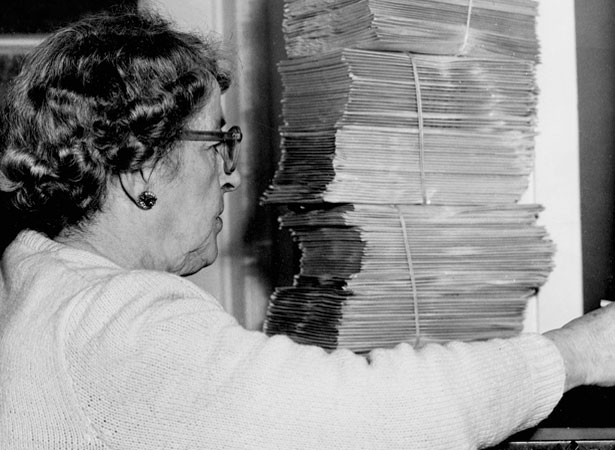
The Mazengarb inquiry into ‘juvenile delinquency’ blamed the perceived promiscuity of the nation’s youth on working mothers, the ready availability of contraceptives, and young women enticing men to have sex.
In July 1954 the government appointed lawyer Oswald Mazengarb to chair a Special Committee on Moral Delinquency in Children and Adolescents. They established the committee after a teenage sex scandal in Lower Hutt and other high-profile incidents such as a milk-bar murder in Auckland and the Parker–Hulme killing (see 22 June).
The report, sent to every New Zealand home, sheeted juvenile delinquency home to inadequate parental supervision and advocated a return to Christianity and traditional values. Excessive wages paid to teenagers, a decline in the quality of family life, and the influence of American films, comics and other literature all apparently contributed to the problem. The report provided a basis for new legislation that introduced stricter censorship and restrictions on giving contraceptive advice to young people.
Despite the public furore it provoked, the Mazengarb report and other government papers and inquiries that followed in the 1960s and 1980s had no observable impact on young people’s behaviour.
Read more on NZHistory
The post-war family – Children and adolescents, 1930-19601954 - key events – The 1950s
External links
How to cite this page
'Mazengarb report released', URL: https://nzhistory.govt.nz/the-mazengarb-report-on-juvenile-moral-delinquency-is-released, (Ministry for Culture and Heritage), updated 4-Sep-2020
